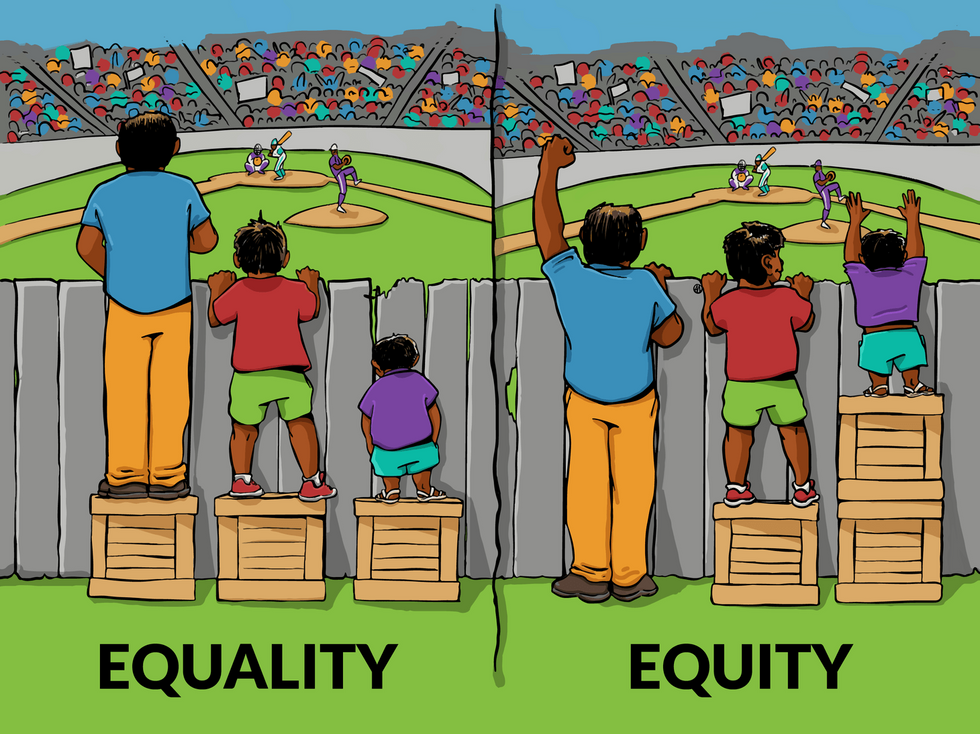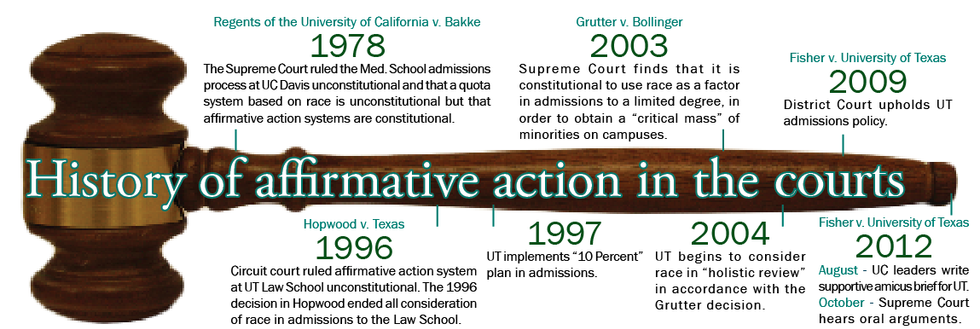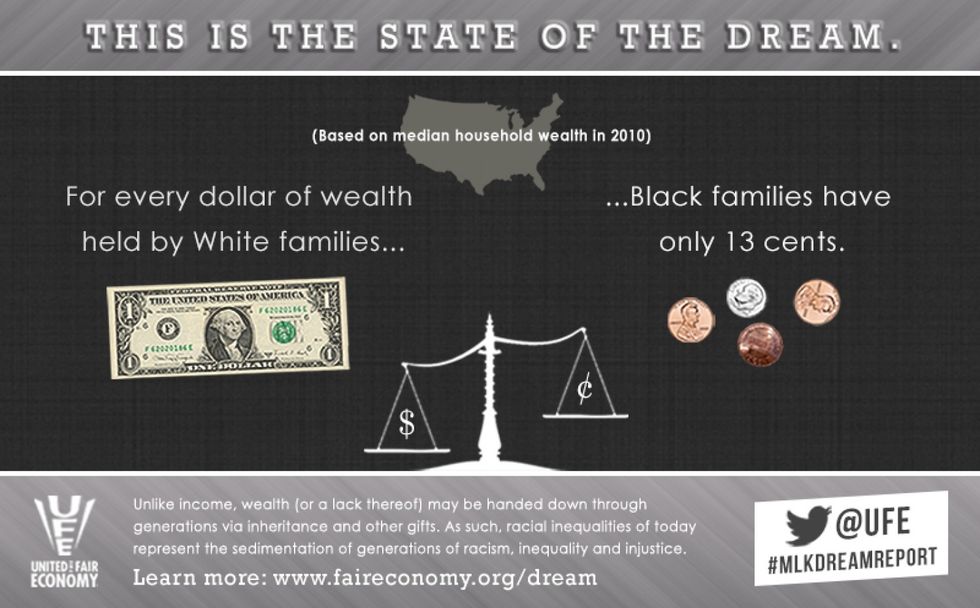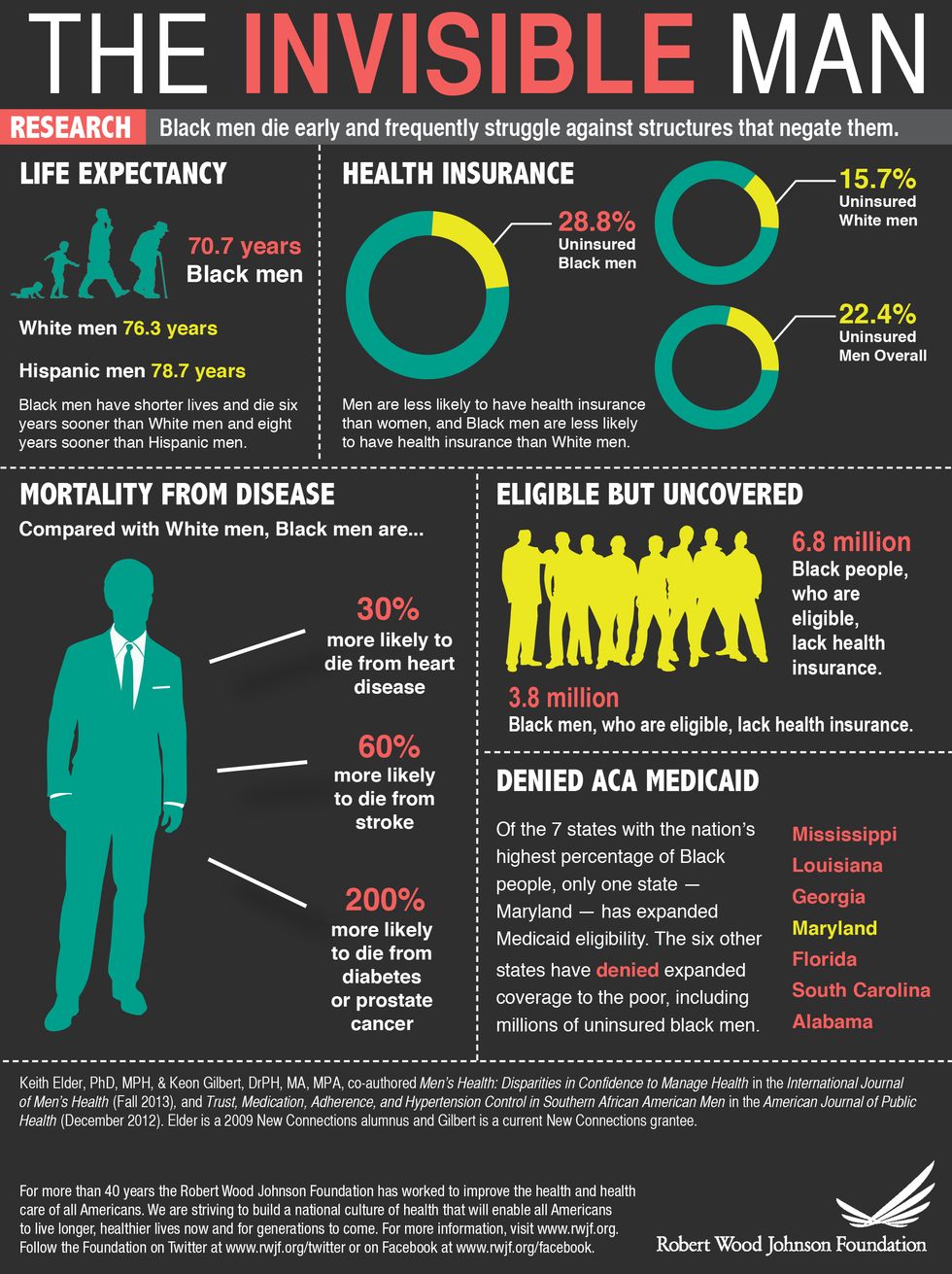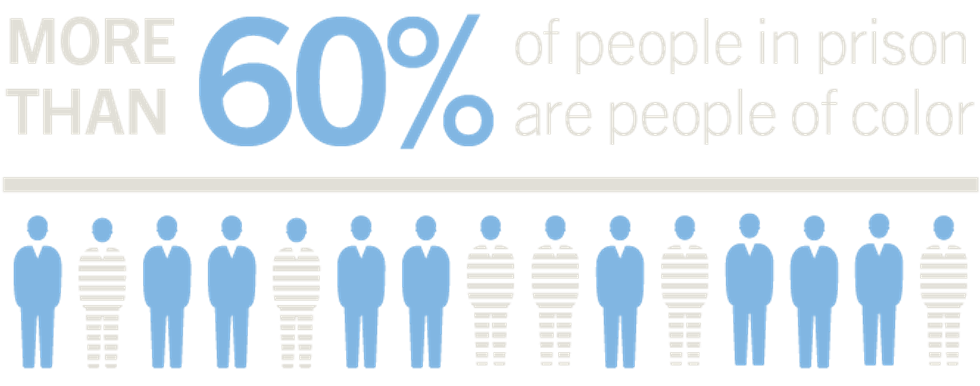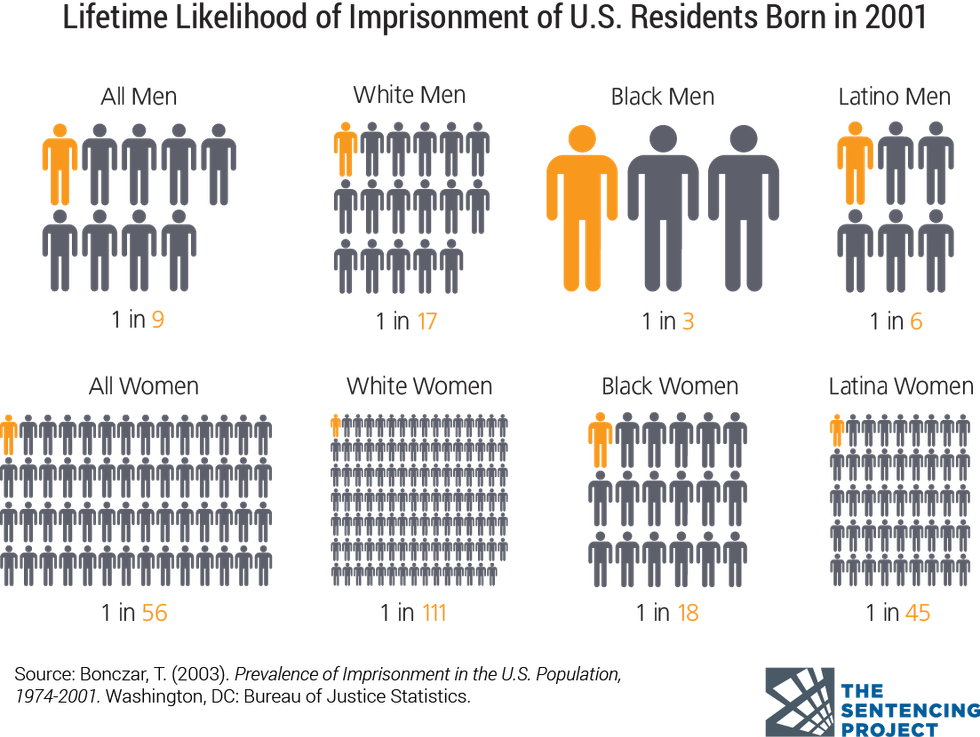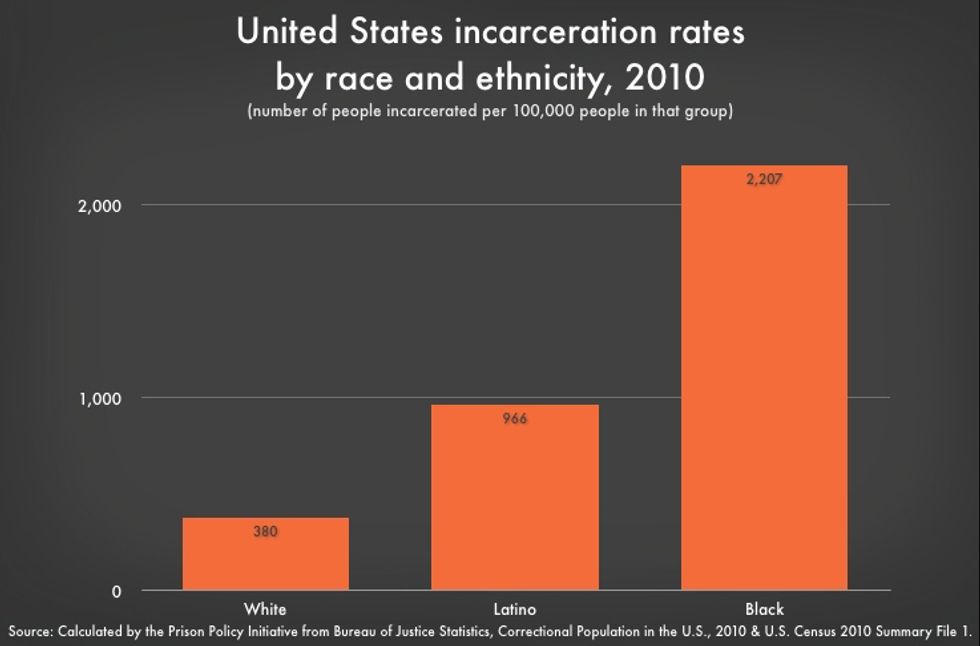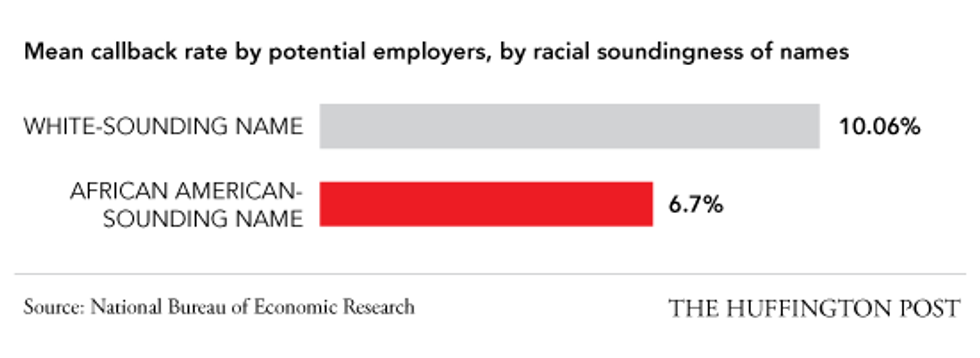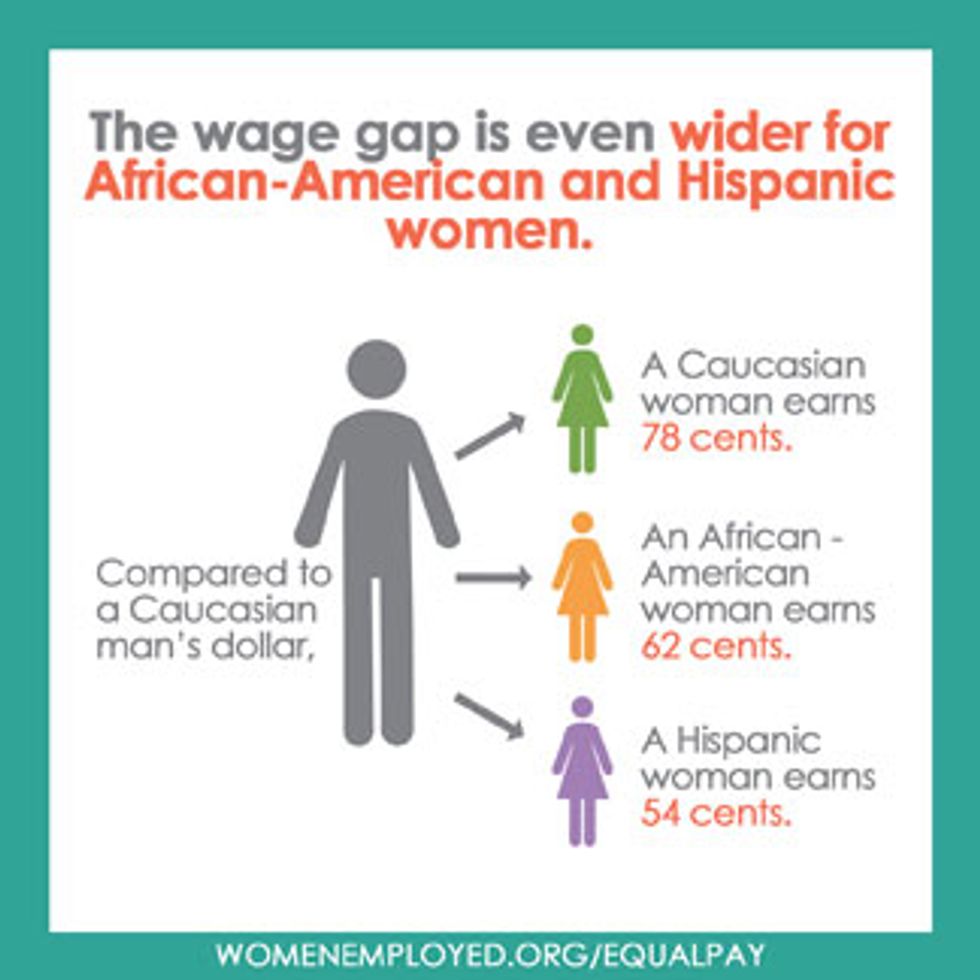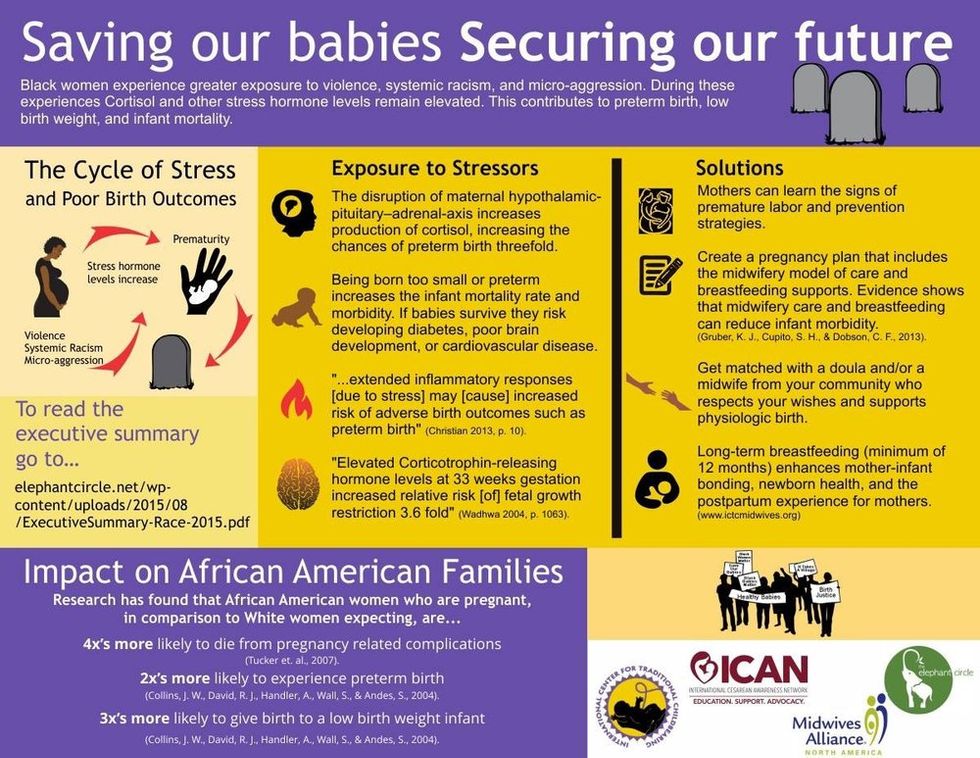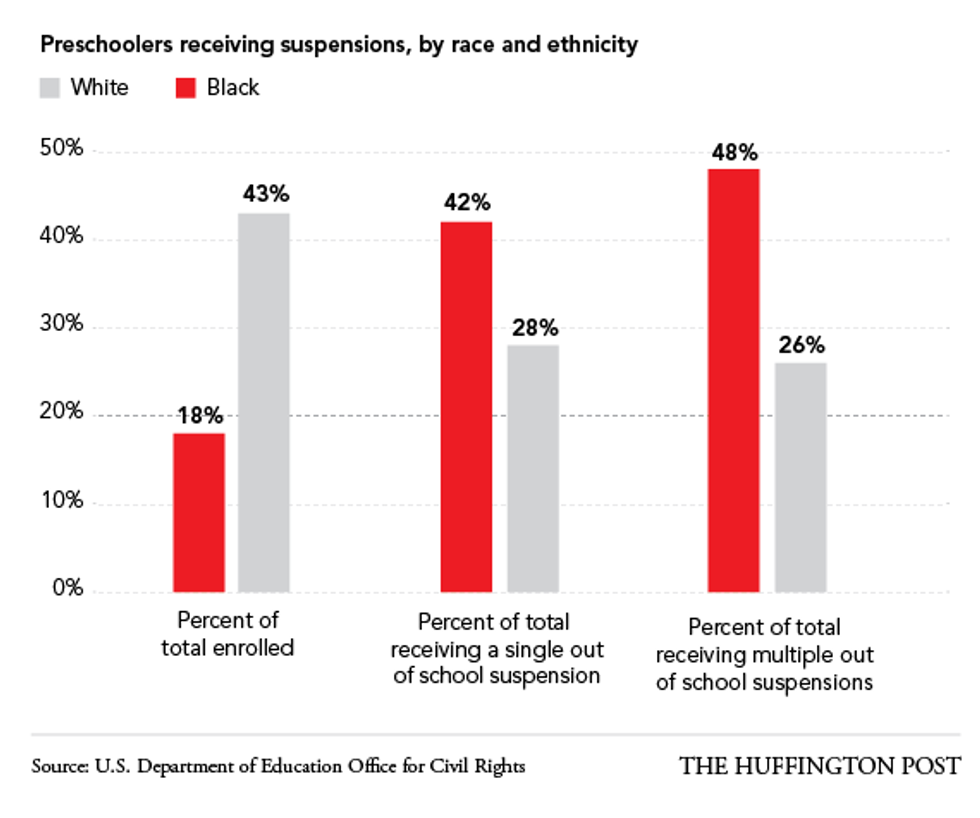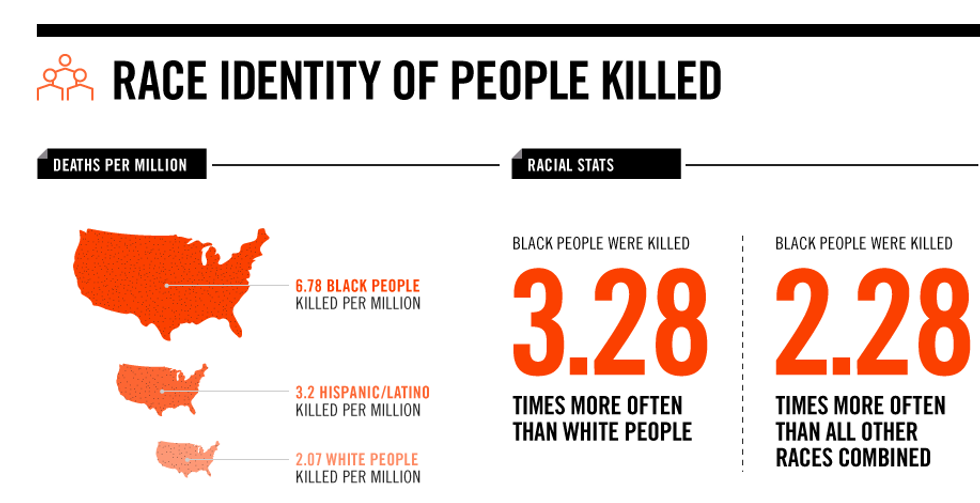Everyone deserves equal opportunity. Due to the nature of human societies, historical and cultural power dynamics sometimes provide those opportunities to some groups while excluding others. Check out the following statistics, and tell me our current system even with Affirmative Action gives equal opportunity to all. There are so many brilliant minds in so many different kinds of bodies, and doesn't freedom mean every mind is able to contribute to the world to its utmost capability? Doesn't everyone deserve that dream?
Equal opportunity is not the same as equal outcome. The fact is that African-Americans do not have equal opportunities. African-Americans are systemically excluded from many sectors of society. Consider that many African-Americans are relegated to poor regions, partially because in the 1950s (less than 70 years ago) it was illegal for black people to live in certain areas, and then multiply that by all the other systemic inequalities which have kept African-Americans forced into poverty, over-incarcerated, excluded from work opportunity, without access to adequate education or infrastructure, without access to adequate health care, and without access to most of the things that you consider your basic human rights. If our government is angry about excluded groups relying on welfare, food stamps, and Medicaid to survive, why wouldn't you want them to have access to the very tools that can help them build better lives for themselves? If you want people to not rely on government systems to survive, why don't you want those people to have the basic freedoms to do so?
Recommended for you
Affirmative Action is not a long-term solution. If anything, it's a Band-Aid to justify failure to address deeper systemic problems of inequality. But you know what else it is? It's like a heart monitor- those things you implant into people's bodies to keep them alive. Affirmative Action is a heart monitor for America, it's an implant to jumpstart a sick and failing system, and it is necessary for that system to heal. Our system is sick, and it needs some kind of aid to help make up that difference, to make our society a little less sick, and maybe one day we won't need it anymore, but that day is hundreds of years away, if ever, as our society shows no signs of improving its deep-seated racial oppression and consistent nature of reducing black lives to caricatures or statistics. But if it's statistics you want, I've got them. Affirmative Action has already been "banned" in certain states, but our Justice Department is currently proposing to get rid of it entirely. Affirmative Actions is not just for African-Americans, it also helps Hispanics and Asian populations, who are systemically discriminated against and excluded from opportunities based on their race and their backgrounds. Lifelong racist and current Attorney General Jeff Sessions is currently trying to destroy Affirmative Action for "being racist towards white people," and here is why he's wrong.
The history of legally enforced oppression is long.
There is no way I could even remotely begin to adequately address the depths and prevalence of this topic in one article, but just know that it is far more and far worse than anything you learned about "slavery" in school. Slavery wasn't really abolished completely: its name was changed, and our system adjusted to maintain those oppressive status quos within a set of more "socially palatable" ideas (sharecropping, the KKK literally controlling regions of government office, segregation, murder, incarcerating as many black Americans as possible, modern-day almost entirely-black "work camps" where African Americans convicted of minor nonviolent offenses work unpaid in horrible conditions for almost the entirety of their lives, police brutality, the destruction of black families, the criminalization of black women, the disregard for black lives let alone black power and progress). One article or one paragraph could not even begin to do this justice, but take a glimpse of this infographic and take note of the amount of oppressive acts that were enforced by law and government to create inequality.
The history of legally enforced black rights is short.
Our system has legally mandated the oppression of African-Americans, but when it comes to protecting black Americans from the toxicity of our own system, our efforts as a society have been lackluster. The issue at hand is black Americans' access to education, and while access to education is not everything, it is a pivotal stepping stool to improving the inequalities that exist in our system overall.
The reality of Affirmative Action is far more complex than simple overarching quotas, and it's been met with backlash at every turn.
For years, black Americans were excluded from the colleges of their peers- and still are from the most elite colleges of their peers. Recall that at one not-too-distant point in history, black Americans were banned from learning to read at all. Years later, we have tried to correct these cruelties slowly but persistently.
Pearson Education shares a polished version of the history of legal fights against racial inequality in higher learning:
In Brown v. Board of Education, the U.S. Supreme Court fundamentally changed education in America by declaring that 'segregation is inherently unequal.' This landmark decision, in theory, opened the door to a more culturally diverse learning environment through desegregation in 17 states and Washington, D.C., which had always segregated schools by law. Many colleges and universities in 19 states that created separate public colleges for black students and excluded them from white colleges were required to desegregate.
Many other colleges turned to voluntary affirmative action—the policy of recruiting and admitting members of a disadvantaged group who suffered from discrimination or have been historically excluded, often admitting students who would not otherwise be accepted—to help integrate. Since then, we’ve seen but a glimpse of the benefits of racial, cultural, and, more recently, socioeconomic diversity for all learners. Students in diverse schools have access to more educational opportunities, demonstrate improved critical thinking skills, and are better prepared for the world in which they'll live and work. However, the history of equal educational opportunity in America is one of great leaps forward, followed by frustrating inertia.
Rather than getting better, inequality in schools is getting worse.
Considering that 13-15% of the U.S. population is African American or Black, the "most diverse" top colleges have relatively small African American or Black populations
Doug Lederman of Inside Higher Ed reports on a 2013 Georgetown study on racial inequality which yielded distressing results. The Georgetown report, entitled “Separate and Unequal: How Higher Education Reinforces the Intergenerational Reproduction of White Racial Privilege." The report's assertion, that African-American and Latino youth, especially those with low-income backgrounds, are underrepresented at the most-selective institutions and overrepresented at open-access institutions, is something we all probably already knew. But the report revealed something even the researchers didn't expect: inequality is not getting better, it's getting worth. Anthony Carnevale, a lead researcher who specializes in issues of educational access and inequality, reveals what shocked him most about the study:
We find that the situation steadily worsened from 1994 to 2009- even when comparing minority and white students with similar academic and socioeconomic backgrounds. Rather than function to reverse gaps generated by inequities in K-12 education and housing and health, Carnevale says, higher education is now serving as a 'capstone' that exacerbates those other mechanisms.The postsecondary system mimics and magnifies the racial and ethnic inequality in educational preparation it inherits from the K-12 system and then projects this inequality into the labor market.
The problem is bigger than college.
Racial inequality is inherited since birth. It doesn't just start once you get to college, and it doesn't end after. Unless you genuinely hate black people and believe they're not capable of achieving, then you have to admit that these glaring differences are evidence of serious structural inequalities.
If I have to hear the term "race-based discrimination" applied to white people one more time, I'm going to scream. And Affirmative Action might not be the solution, and while it might not change things, it can help. It is a stepping stone.And I don't think we can fix inequality in one piece of legislation. But if we call ourselves Americans and even claim to want a better world for all, Goddamnit, shouldn't we try?
But it's not just colleges.
It's wealth.
It's life expectancy.
It's the law, police conduct, and consequently, the prison system.
More than 60% of people in prison are people of color. Envision that.
Why? Because they're fundamentally worse people? Or is it possibly because our laws are designed to criminalize the lives of specific types of people while also passing legislation to keep them forced into those lives? Hm, I wonder if racial bias in police and court systems plays a factor. (That was sarcasm. Of course it does.)
It's the prison system.
Think about that. One in three. If you are a Black man, you chances to end up in jail are one in three.
...It's really, really the prison system.
Tell me again about "reverse racism." Say that sentence to me one more time.
It's the criminalization of your everyday body.
It's mental health.
It's your job interview.
It's your paycheck.
It's your baby.
It's your kid in preschool.
It's your life.
It's your dreams.
And yes, it's your education.
You can't fix centuries of historic oppression in one act, and Affirmative Action neither aims to nor is capable of even remotely achieving that.
We need to fix our deeper-rooted systemic violences and prejudices which sustain privilege and rampant injustice, and all of the "statistics" (all of the facts about modern-day oppression) are only symptoms of our greater problems. But if we can change any one thing about ourselves to stop doing this, any way we can, shouldn't we do that?
If I have to hear the term "race-based discrimination" applied to white people one more time, I'm going to scream. And Affirmative Action might not be the solution, and while it might not change things, it can help. It is a stepping stone.And I don't think we can fix inequality in one piece of legislation. But if we call ourselves Americans and even claim to want a better world for all, Goddamnit, shouldn't we try?

